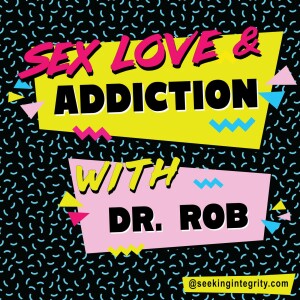
Thursday Aug 27, 2020
Understanding Internal Family Systems Therapy with Jenna Riemersma
Jenna Riemersma is the Clinical Director of The Atlanta Center for Relational Healing. She is a teaching faculty member for the International Institute of Trauma and Addiction Professionals (IITAP). Jenna holds a Master's degree in Public Policy from Harvard University and a Masters’ Degree in Professional Counseling from Richmont Graduate University. Jenna is the recent author of Altogether You, which better explains IFS therapy and how every part of you is meant to be (and should not be shamed for it).
TAKEAWAYS:
[3:00] What is Jenna’s book about and why did she write it?
[5:15] How do we best manage or process the different parts of ourselves?
[7:15] We each have a core or a deep self within us. It is whole and it consists of the 8 C’s. However, our different parts (traumas) jump up and obstruct our access to our deep self.
[10:55] Dr. Rob shares an example to better understand what Jenna means.
[14:30] How do you bring healing to your different parts to become connected to your core self?
[15:50] Why do we have such high relapse rates in addiction?
[18:50] When we live in our core self, we instinctively embrace all parts.
[21:45] Rage and sex addiction are not okay, but the part underneath it all is what we’re trying to help: the individual.
[24:10] We all have parts at war within ourselves. For addicts, it might be they want to act out sexually and at the same time, they desperately want to be faithful to their partner.
[28:00] IFS is applicable not for addiction, but for relationships and conflict.
[33:15] How does MDMA help people with complex PTSD?
RESOURCES:
The Porn Panic: Is Porn a ‘Public Health Crisis’?
Cruise Control: Understanding Sex Addiction in Gay Men
Prodependence: Moving Beyond Codependency
Connect with Jenna Riemersma: Jennariemersma.com
Jenna’s book: Altogether You
QUOTES:
- “The more effective way to bring healing to a part is by recognizing this is a wonderful part that’s gotten stuck in a very damaging role.”
- “It’s really about befriending the parts of us of which we are the most ashamed and the parts we feel are the most unacceptable.”
- “All parts of them are welcome and there’s another way besides shaming ourselves that we can heal.”
- “We all have parts at war and they look different in all of us.”
No comments yet. Be the first to say something!